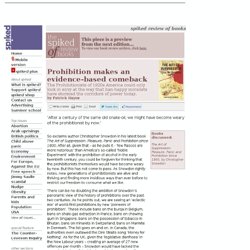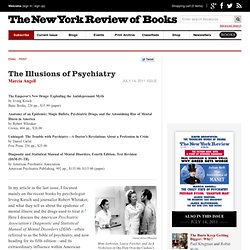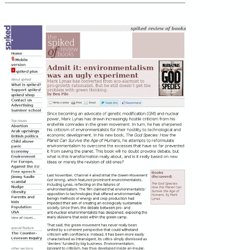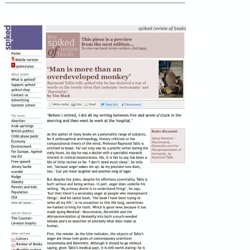

Prohibition makes an evidence-based comeback. So exclaims author Christopher Snowdon in his latest book The Art of Suppression: Pleasure, Panic and Prohibition since 1800 .

After all, given that – as he puts it - ‘few fiascos are more notorious’ than America’s so-called ‘Noble Experiment’ with the prohibition of alcohol in the early twentieth century, you could be forgiven for thinking that the prohibitionists themselves would have become weary by now. But this has not come to pass. As Snowdon rightly notes, new generations of prohibitionists are alive and thriving and finding more insidious ways than ever before to restrict our freedom to consume what we like.
Hollowing out the ivory tower. Professor Alison Wolf is a breathless speaker – as I discovered while trying to keep up during the course of our interview.

But as the author of Does Education Matter? Myths About Education and Economic Growth , and more recently of the government-commissioned Review of Vocational Education , Wolf is certainly worth listening to on the plight of British universities. And nowhere is her insight more valuable than when it comes to tackling what she has called ‘the great secular faith of our age’ – namely, the idea that education is the key to economic growth, swelling both an individual’s bank balance and expanding a nation’s GDP. article continues after advertisement There’s no doubt that this is a faith with many followers.
The Epidemic of Mental Illness: Why? by Marcia Angell. The Emperor’s New Drugs: Exploding the Antidepressant Myth by Irving Kirsch Basic Books, 226 pp., $15.99 (paper) William Styron, unlikely bard of depression. - By Nell Casey. When I first met William Styron, in the summer of 2001, he was frail, barely back on his feet after a brutal bout with depression.

I met him and his wife, Rose, at a bookstore where we read from Unholy Ghost, a collection of essays on depression I'd edited, and to which both Styrons had contributed. I was taken aback by Styron's vulnerability. It was his ravaging sorrow that had brought us there, but still somehow his reputation as Famous Writer (and the few brusque phone conversations that preceded our meeting) had trumped his reputation as Depressed Person in my mind. As we talked, his hands gently trembled, and he spoke with a far-off quietness, as if his words were traveling from a great distance. The Illusions of Psychiatry by Marcia Angell.
The Emperor’s New Drugs: Exploding the Antidepressant Myth by Irving Kirsch Basic Books, 226 pp., $15.99 (paper) Anatomy of an Epidemic: Magic Bullets, Psychiatric Drugs, and the Astonishing Rise of Mental Illness in America by Robert Whitaker Crown, 404 pp., $26.00 Unhinged: The Trouble with Psychiatry—A Doctor’s Revelations About a Profession in Crisis.

The Dawn of Politics by Adam Kirsch, City Journal Spring 2011. Francis Fukuyama goes back to the beginning. OSF/Clive Bromhall/Animals Animals/Earth Scenes. John Gray: The Knowns And The Unknowns. The Knowns and the Unknowns.

The God Species by Mark Lynas - review. The political and environmental profile of climate change has been dramatically reconfigured in the past two years.

A wave of activism has dissipated and a broad consensus on the necessary measures broken thanks to the failed Copenhagen summit and the anti-global-warming lobby's apparent triumph in the Climategate emails affair. Mark Lynas is one of a growing band of influential figures, along with James Lovelock, Stewart Brand and George Monbiot, who now argue that the approach of most Greens to climate change needs to change. Lynas puts it briskly in this new book. Admit it: environmentalism was an ugly experiment. Last November, Channel 4 aired What the Green Movement Got Wrong , which featured prominent environmentalists, including Lynas, reflecting on the failures of environmentalism.

The film claimed that environmentalists’ opposition to technologies that offered environmentally benign methods of energy and crop production had impeded their aim of creating an ecologically sustainable society. ‘Man is more than an overdeveloped monkey’ As the author of many books on a polymathic range of subjects, be it philosophical anthropology, literary criticism or the computational theory of the mind, Professor Raymond Tallis is entitled to boast.

For not only was he a prolific writer during the early hours, by day he was a doctor with a specialist research interest in clinical neuroscience. His, it is fair to say, has been a life of little recline so far. ‘I don’t need much sleep’, he tells me, ‘because anger wakes me up. As my prostate now does, too.’ Cue yet more laughter and another swig of lager. Three Golden Rules for book reviewing: What are they? - By Robert Pinsky. Possibly the most famous book review, ever, was written by the young Irish wit and polemicist John Wilson Croker. Adam Kirsch Reviews Vasily Grossman's "Life And Fate" WRITING THE STORY of the Holocaust is a futile ambition—not because the events of 1939 to 1945 are too horrible to be told, but because they are too various to be compressed into one definitive or representative story.

Straight by Hanne Blank, reviewed. George Eastman House Collection.

You quondam liberal-artists out there—veterans of lit-crit and queer theory, men and womyn formerly fluent in what Said said and all that Lacan cant—may yet remember that we live our lives according to a system of social constructs. The idea of race did not exist until colonialism required it. Suzanne Collins’s “The Hunger Games,” review. Rebecca Stead chose to set her children’s novel “When You Reach Me”—winner of the 2010 Newbery Medal—in nineteen-seventies New York partly because that’s where she grew up, but also, as she told one interviewer, because she wanted “to show a world of kids with a great deal of autonomy.” Her characters, middle-class middle-school students, routinely walk around the Upper West Side by themselves, a rare freedom in today’s city, despite a significant drop in New York’s crime rate since Stead’s footloose youth. Ruth Franklin: Was ‘Frankenstein’ Really About Childbirth?
“I have no doubt of seeing the animal today,” Mary Wollstonecraft wrote hastily to her husband, William Godwin, on August 30, 1797, as she waited for the midwife who would help her deliver the couple’s first child. The “animal” was Mary Wollstonecraft Godwin, who would grow up to be Mary Shelley, wife of the Romantic poet Percy Bysshe Shelley and author of Frankenstein, one of the most enduring and influential novels of the nineteenth century.
But Wollstonecraft would not live to see her daughter’s fame: She died of an infection days after giving birth. A Night in Arzamas - Jordan Smith. Nobel Winner Eric Kandel: ‘The Age of Insight,’ Memory, the Holocaust, and the Art of Vienna. Tuberculosis was once a death sentence. Doctors could do little to treat it, and almost nothing was known of its spread. Two physicians—Robert Koch and Arthur Conan Doyle—changed that. In his new book, The Remedy, Thomas Goetz explores the history of tuberculosis—once a death sentence that claimed 2 percent of U.S. and U.K. populations each year. Steve Hahn: If X, Then Why? Book Review: Social Conquest of Earth. The Art of the Heist: Valuing Art through Its Theft. Bonnie B. Lee features.
'Ameritopia': How Dumb Can Political Philosophy Get? - The Chronicle Review. By Carlin Romano. Review: A Singular Empire. What Makes Countries Rich or Poor? by Jared Diamond. Debt by david graeber. David Graeber has been much praised of late as a prophet of the Occupy Wall Street movement, and even if one doesn't want to go that far, his book is remarkably timely.
Laurent Binet’s “HHhH” and Historical Fiction.